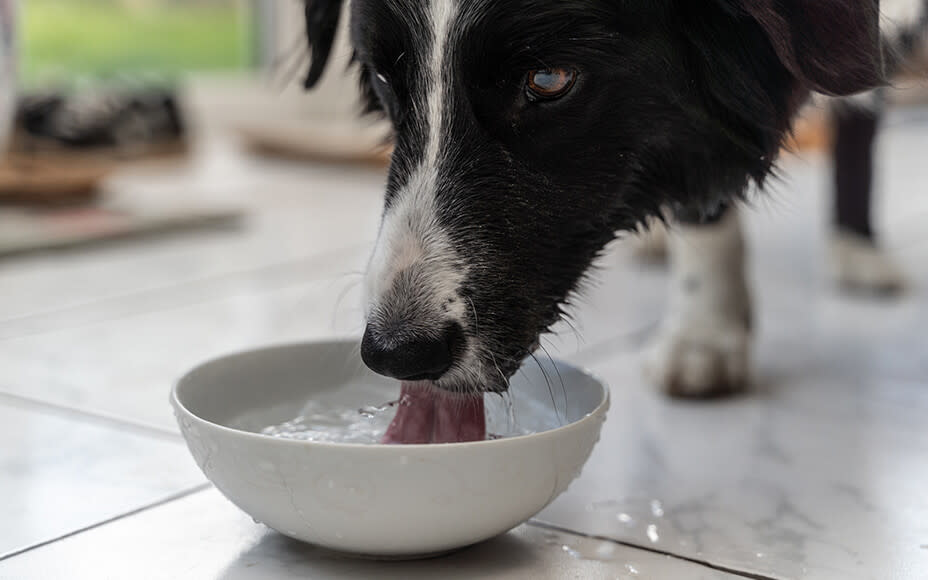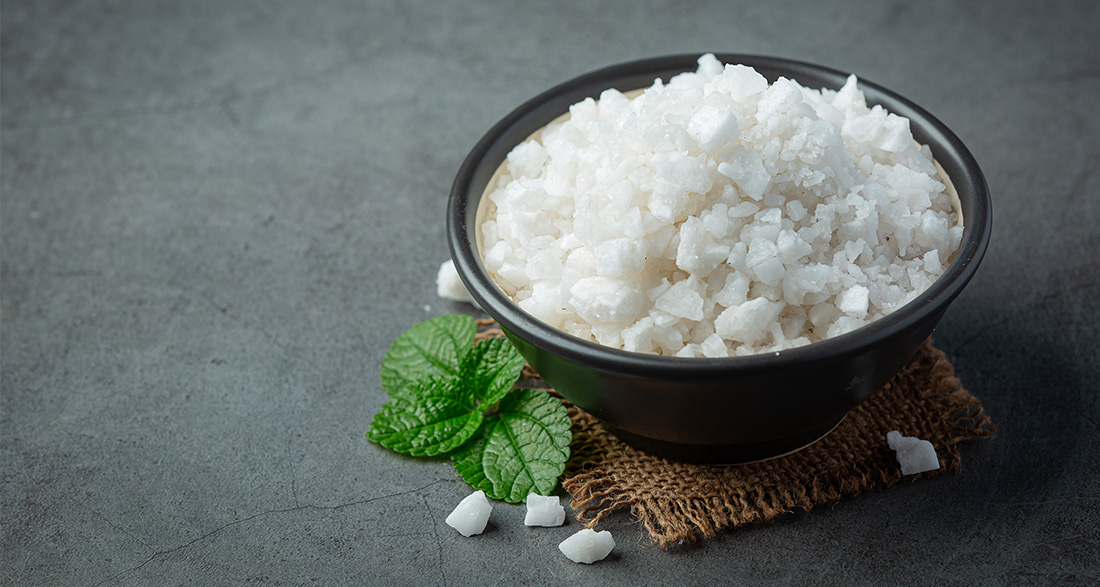Can dogs eat salt, or is the spice harmful to them? Learn more about the topic.
Salt for Dogs – Allowed or Toxic?
Whether on potatoes, eggs, or in any other meal, a life without salt is like a meal without… spices, indeed. For us, quite sad and unimaginable – as “white gold” adds the right kick to the plate. Once as valuable as pure gold, now a standard product in every kitchen, salt has been highly sought after in ancient civilizations.
But what is salt, and is it allowed for dogs? Primarily consisting of sodium chloride, the colloquial “salt” nowadays refers to common table salt or cooking salt. Salt, in the right dose, performs many crucial functions in the body, and dogs are not only allowed but also required to eat salt. Before you reach for a teaspoon of salt to enhance your furry friend’s food, you should first understand why dogs need this mineral and in what quantity.
Do Dogs Need Salt?
Why is the Mineral So Important? Salt regulates water balance, digestion, and healthy muscle function. We bipeds also have a certain salt content in the body—0.9%, equivalent to an isotonic saline solution you may have heard of. Only this allows our cells to work stably, and they would not function at a lower proportion.

Like any other mammal, your four-legged friend needs salts. Even wolves covered their salt needs through the sodium contained in the blood of their prey, surpassing the recommended daily dose for us. Does this mean that our dogs need much more salt? Scientifically, it’s not yet clear how much salt a dog precisely needs. What is certain is that dogs cannot survive without salt, and an excessive dose can lead to poisoning symptoms. The required amount of salt is highly individual, depending on the size, weight, and health condition of the dog.
With our high-quality dog food, we not only serve your furry friend the tastiest feast but also meet its nutritional needs. Through the combination of fresh meat, crisp vegetables, fruity fruits, as well as oils and herbs, we provide your dog with everything it needs for a healthy life.
Since sodium is a vital mineral, you can find it naturally in our food. According to the feeding recommendations, your dog receives the appropriate amount of salt. No matter how much you love your furry friend, you should not oversalt its food!
Is Salt Harmful to Dogs, and How Does an Overdose Manifest?
Salt is harmful to your dog only when consumed excessively. A high amount of salt in the diet is suspected to promote kidney and cardiovascular diseases. Dogs with pre-existing kidney and heart conditions usually require a special diet with food tailored to these needs and a lower salt content.
If your furry friend grabs a French fry, it won’t immediately suffer from “salt poisoning.” Depending on your dog’s size and weight, it takes a considerable amount of salt – combined with insufficient water. So, if your dog, for example, slurped seawater (which you should definitely avoid on vacation) or had a salty meal, these symptoms may indicate excessive salt intake:
- Fever
- Diarrhea
- Abdominal pain
- Muscle twitching
- Tension and restlessness
- Heavy panting
- High fluid requirement
- High heart rate (normal: 70-100 beats per minute, up to 200 in puppies)
You want to shower your dog with love and worry that it also gets all the healthy additions it needs? No worries, the right food as part of appropriate nutrition takes care of that. But your dog can never get enough of one ingredient: love! And what better way to do that than with a healthy treat that comes without sugar, grains, and artificial additives?
What should I do if my dog has eaten salt?
Excessive salt can quickly become dangerous, especially for puppies and young dogs. However, even small dog breeds require lower amounts to cause an overdose. Dogs do not always react immediately with visible symptoms, and prolonged elevated salt intake poses a risk of kidney and heart diseases.

Healthy dogs, on the other hand, can generally excrete small amounts of salt through the kidneys – but it also depends on the quantity. The key is that your dog can quench the thirst caused by too much salt. This reduces the salt content in the blood, and the excess salt finds its way out of the body. In practice, salt poisoning is more known when dogs have no access to water. Therefore, always ensure that your dog can drink enough fresh water.
Salt is generally not toxic to your dog, and it won’t suffer from salt poisoning just by taking a bite of your food. Although its stomach might grumble, it becomes health-damaging only when it consumes a high amount of pure salt or is supplemented with salt for an extended period in addition to its complete food. Healthy dogs can usually excrete small amounts of salt through their kidneys – but again, it depends on the quantity. If your dog has ingested a large amount of salt and its condition changes, it’s advisable to call the veterinarian to be on the safe side.
So, if you want to enhance your dog’s food, it’s better not to add salt. Instead, try our irresistible salmon oil or the vitamin booster – your furry friend will be supplied with healthy fats and vitamins and enjoy a delicious topping!
Can Dogs Taste Salt?
Our four-legged friends can taste things just like we can and can also distinguish these tastes. However, due to having only about 1/5 of the amount of taste receptors, the intensity is far milder. So, your furry friend is not much of a salty taster anyway, and it won’t miss much if its meal is a little less salty than your lunch.


